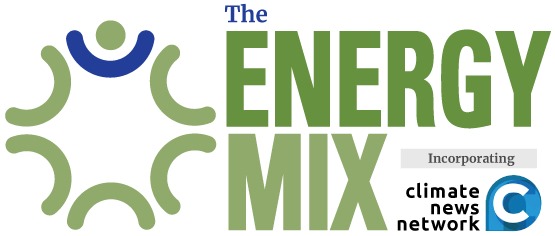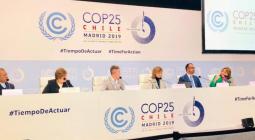Big Oil Spins Climate Education in Canadian Classrooms, Report Warns
Fossil fuel companies are influencing what Canadian students learn about climate change, funding and supplying educational materials that frame the issue to serve their interests, health and climate advocates warn in a new report.
At least 39 oil and gas companies and 12 industry-linked organizations—including Shell, TC Energy, and the Pathways Alliance—have supplied classroom resources that downplay the sector’s role in driving global heating, the report states [pdf]. The materials emphasize consumer responsibility and technological solutions, while largely omitting the need for a rapid transition away from fossil fuels.
Published by the Canadian Association of Physicians for the Environment (CAPE) and the parent-led advocacy group For Our Kids, the report argues that industry-backed materials present a distorted picture to students, steering them toward false solutions.
‘The Amazing Athabasca Oil Sands’
Through direct contact with schools, government partnerships, and funding for third-party education, oil and gas interests like Shell, Imperial Oil, and Cenovus have a heavy influence on what Canadian kids learn, the report authors say.
Énergir, for example, has sponsored a Quebec school program since 2016, encouraging children and families to “commit to reducing their carbon footprint and then sell their reductions to other participants as carbon credits.”
And in 2014, the Alberta government enlisted Suncor Energy and Syncrude, separate entities at the time, to partner on curriculum creation for kindergarten to grade three, and Cenovus to partner on curriculum for grades 4–12, the authors say. More recently, Alberta’s revamped curriculum includes an expectation that students should “know the global significance of Alberta’s vast oil reserves and Alberta’s reputation as the most ethical producer of oil in the world.”
SEEDS Connections, Let’s Talk Science, and EarthRangers are examples of oil industry-funded, third-party environmental educators whose programming includes industry-backed perspectives, the report concludes. SEEDS produced a film called “The Amazing Athabasca Oil Sands” as an educational resource for teachers.
Whether overt or indirect, Big Oil’s presence in the classroom is strategic and effective, “working to normalize fossil fuels as essential and secure support for their continued consumption,” the authors write.
The Rise of ‘Petro-Pedagogy’
Listing further examples of petroleum-powered pedagogy in a news release, CAPE includes Calgary-based Teine Energy’s direct involvement in the development of an online oil and gas curriculum for Saskatchewan high schoolers.
But even less overt efforts by fossil fuel interests betray their origins in a common suite of strategies seen in the materials:
• The so-called “bias-balanced” approach to energy education, which suggests that industry perspectives are necessary to a full and fair picture, framing lessons that exclude those perspectives as biased;
• Greenwashing, or making misleading environmental impact claims, which could be as simple as placing logos on environmental education resources—like the Chevron logo on the poster for the Chevron Open Minds Zoo School in Calgary;
• Redwashing, or presenting “uniformly positive representations of the fossil fuel industry’s relations to Indigenous people,” a depiction that “ignores Indigenous resistance to and harms from fossil fuel projects”;
• Focusing on individual action and unproven technological solutions, rather than a systemic and rapid energy transition.
Mitigating Big Oil’s Influence
“Youth in Canada are asking for an education that empowers and equips them with the knowledge and skills to address the climate crisis and take action,” write the report authors. Teachers want to provide that education, but are constrained by budget strictures and a lack of training, the latter being reflected in the fact that “only one-third (34%) of educators feel they have the knowledge and skills needed to teach climate change.”
But good actors are stepping up, as public awareness spreads and the climate crisis escalates. CAPE mentions its own successful efforts to end gas company FortisBC’s Energy Leaders program, offered in British Columbia public schools during the pandemic.
Youth are also stepping up, crystal clear on the kind of climate education they want: honesty and transparency about the oil sector’s role in driving the climate crisis, and of the urgent need for a transition away from fossil fuels.
The report cites a “particularly ambitious” youth-led campaign in B.C. in 2020 called Climate Education Reform BC (CERBC). The campaign called for creation of a community consultation committee on curriculum reform—one that should be independent from the education ministry’s internal body, and from fossil fuel companies or those with business risk associated with climate reform—to ensure that calls for change “will not be watered down to serve our fossil fuel-driven and dependent society’.”
Building Robust Climate Education
Governments have a critical role to play in producing the “robust climate education” that Canadian kids deserve and require, CAPE and For Our Kids conclude.
“Given that public education in Canada falls under provincial and territorial jurisdiction, action by Ministries of Education is critical for limiting fossil fuel influence and advancing climate change education in K–12 schools,” the report authors write.
Connected and responsive to their communities, school boards also stand to be “very effective” in strengthening climate education, in a position to prohibit fossil fuel sponsorship in schools and vet educational resources.
Other allies include teachers’ organizations, faculties of education, and parents.
Cover photo: Pixabay






